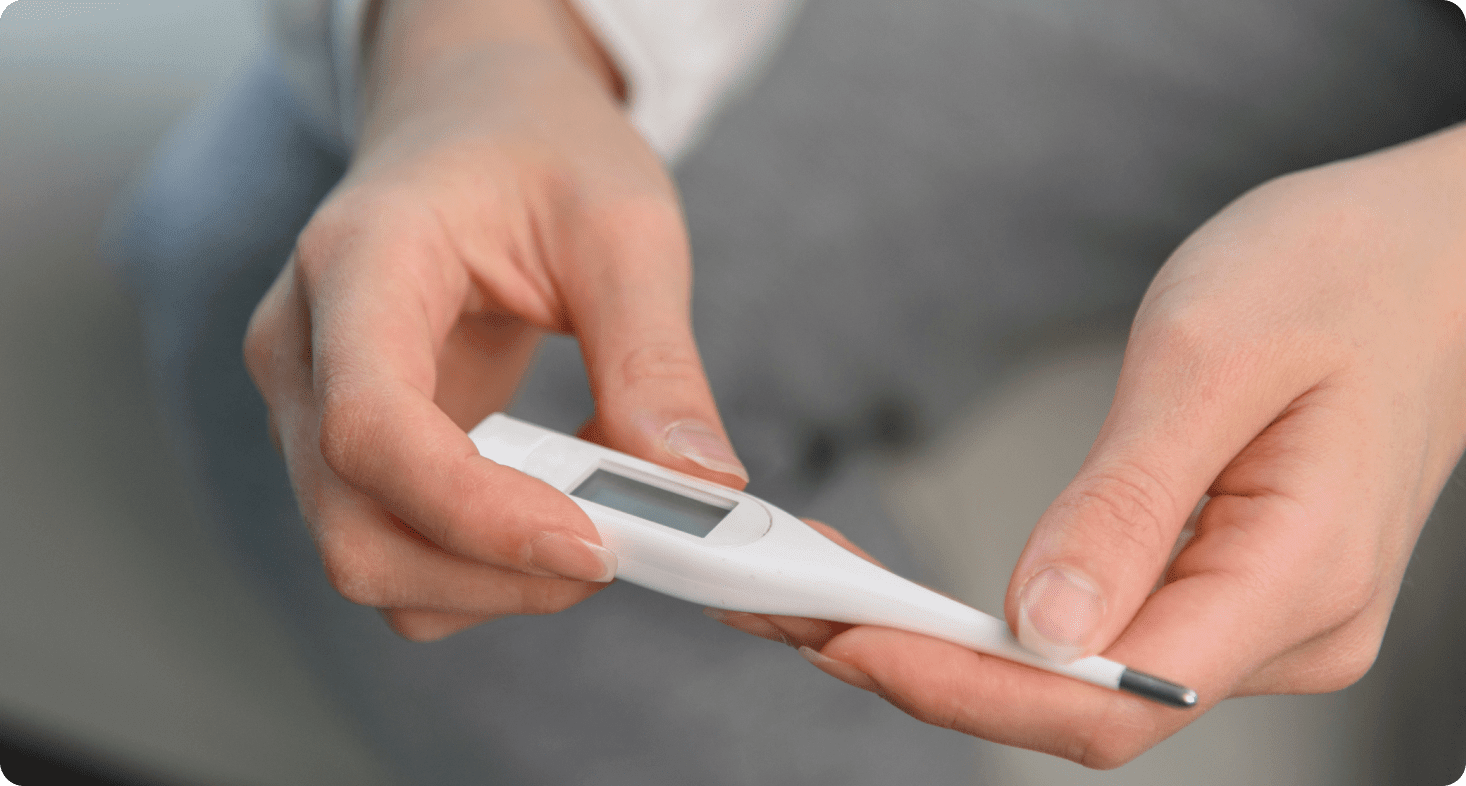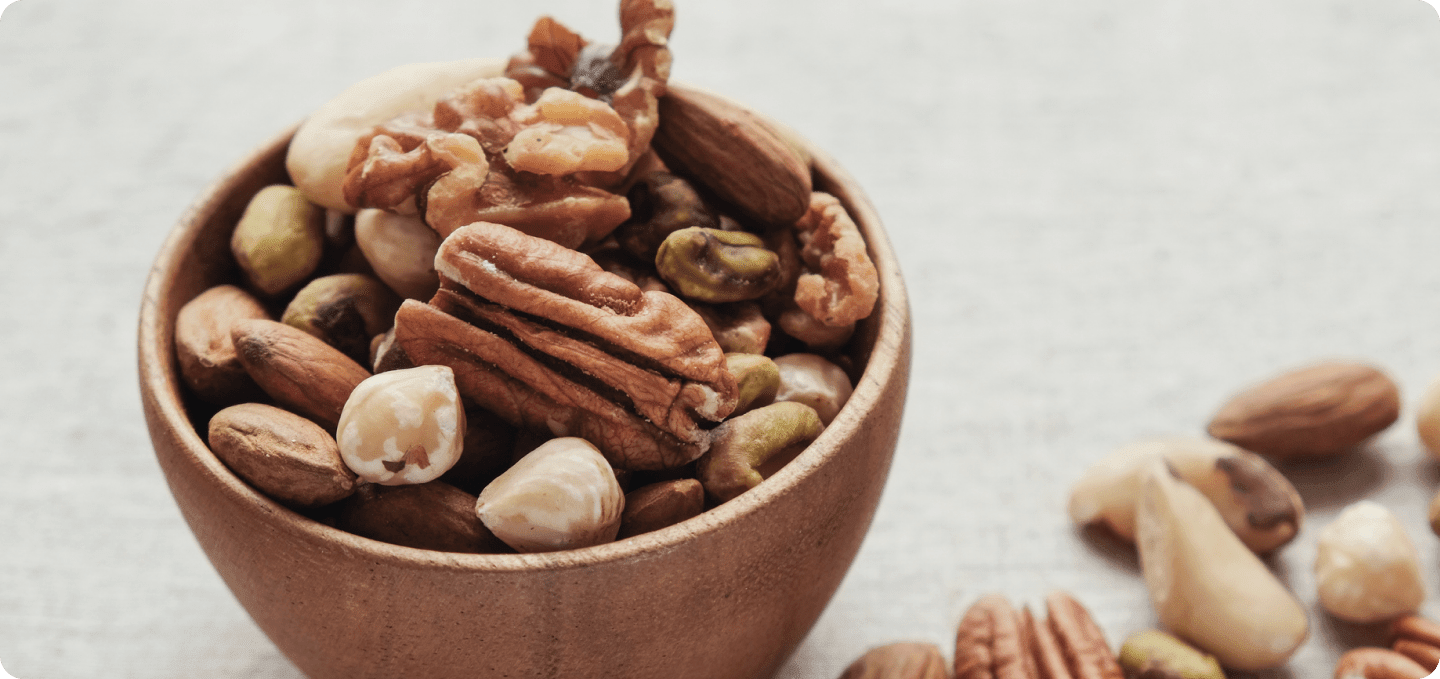Looking for practical tips for conceiving? Here you’ll find a complete, no-fluff guide to help you boost your chances to get pregnant faster.
Everything You Need to Know About Getting Pregnant
- Track your fertile window with an ovulation calculator/app, ovulation predictor kits (OPKs), or natural family planning (NFP).
- A well-built uterine lining supports embryo implantation.
- Stress can negatively affect fertility in both women and men.
- Most commercial lubricants can impair sperm motility.
- Alcohol and smoking reduce fertility.
Often just a matter of time
Are you looking for tips to help you get pregnant? Have you two been trying for a while and it hasn’t worked yet? Often, it really is just a matter of time before a pregnancy occurs. About 80% of couples who have regular intercourse conceive within one year. Even so, it’s completely understandable that you want to fulfill your wish to have a child as soon as possible.
The 11 Best Tips for Conceiving
1) Find your fertile window (apps, OPKs, or NFP)
The single most important step is knowing when you ovulate so you can time intercourse.
- Ovulation calculators & apps: Log your period start date and symptoms to estimate fertile days.
- Ovulation tests (OPKs): These detect the LH surge. When your test turns positive, ovulation typically occurs the next day—that ovulation day is your prime conception day.
- Natural Family Planning (NFP): Track basal body temperature (BBT) before getting out of bed, observe cervical mucus, and check cervix position to pinpoint fertile days.
- Fertility check at a clinic: Bloodwork and ultrasound can precisely identify ovulation and uncover irregularities to maximize your chances.

2) Skip the lube
Even “fertility-friendly” lubricants don’t improve conception rates; many products reduce sperm motility. Best to avoid lube while TTC.
3) Eat for fertility
A balanced diet supports egg and sperm health.
- Antioxidants: Found in berries, leafy greens, legumes, and whole grains; support sperm production.
- Vitamin C: Peppers, citrus, and broccoli are rich sources. In one study, men who took 1000 mg twice daily for two months improved sperm motility by 92% and sperm count by 100%.
- Fish & seafood: While meat tends to have a negative effect on sperm motility, a review study found that fish and seafood have a positive effect on sperm quality. Another study showed that couples who regularly consumed seafood and fish had a higher pregnancy rate.
- Iron: Low iron is associated with irregular or absent ovulation; chronic deficiency can reduce fertility in women and affect spermatogenesis in men.
- Selenium: Essential for follicle development; deficiency is linked to miscarriage, fetal nervous/immune issues, and low birth weight; in men it supports motility and overall sperm quality.
- Zinc: Around 9% of infertility cases are tied to zinc deficiency. In pregnancy, deficiency raises miscarriage risk and may impair fetal growth, neural development, and placenta function. In IVF, adding zinc to sperm can improve motility and fertilization capacity.
- Iodine: Needed for thyroid hormones; deficiency can cause hypothyroidism and reduce fertility. Higher iodine intake may help in unexplained infertility.

Limit or avoid:
- Low-fat dairy: Some studies suggest it may negatively impact female fertility.
- Red/processed meat: Associated with lower sperm quality, count, and motility (vs. fish).
- Sugary sodas/energy drinks: Linked to fewer mature/fertilized eggs and fewer high-quality embryos.
Want to go deeper? See our guide on natural fertility boosters (diet edition).
4) Start folic acid now
Begin folic acid before you even start trying. It may benefit women with anovulation and is crucial to prevent neural tube defects (NTDs). Because the neural tube forms on days 21–28 of pregnancy, start about one month before trying to conceive.

5) Stop hormonal birth control early
If you’re using a hormonal IUD, pill, patch, 3-month shot, or implant and want to conceive, stop several months in advance. Some conceive in the first cycle, but for others it takes time for cycles to normalize as synthetic hormones clear. Finish your current pill pack and ask your gynecologist for personalized guidance.
6) Support a receptive uterine lining
After fertilization, the embryo must implant in the uterus. If the endometrium is thin—often after hormonal contraception due to progestins—implantation can fail.
- Focus on leafy greens, whole grains, berries, nuts, and fish.
- Consider supplements such as L-arginine, vitamin E, and omega-3 fatty acids (talk to your clinician).
- Move your body regularly.
7) Aim for a healthy weight
Underweight and overweight both impact fertility. Aim for a BMI of ~19–24. Low BMI often causes irregular cycles or even absent ovulation; overweight reduces the likelihood of conception.
8) Move—just not to extremes
Moderate exercise is linked to a shorter time to pregnancy. Overtraining can do the opposite.
Recommended activities:
- Walking & hiking
- Cycling
- Yoga
- Light-to-moderate strength training
- Tennis or golf
- Swimming

9) Keep stress in check
Stress isn’t always bad—eustress can motivate. But chronic distress elevates cortisol and adrenaline, which can impair fertility.
Potential effects:
- Cycle irregularities
- Anovulation
- Lower egg quality
- Implantation issues
In men, stress can reduce semen quality and contribute to erectile dysfunction.
Try relaxation techniques, regular movement, balanced nutrition, or professional support from a therapist or gynecologist.
10) Hold the alcohol
If you’re trying to conceive, keep alcohol very low or avoid it; in pregnancy, no alcohol is safe. Alcohol can disrupt hormones, affect uterine health, and impair sperm.
A meta-overview found that even low/moderate alcohol intake is associated with lower fertility during IVF/ICSI. Female drinking correlated with lower pregnancy rates; regular male drinking was linked to a higher miscarriage risk.
11) Quit smoking
Smoking harms nearly every system—and fertility is no exception.
Women: Adversely affects the reproductive system, egg count and quality, and cycle regularity. In pregnancy, smoking increases the risk of preterm birth, low birth weight, stillbirth, SIDS, ectopic pregnancy, and cleft lip/palate.
Men: Damages sperm DNA, which can delay conception, raise miscarriage risk, and increase certain birth defects.
Need more tips? In this podcast you'll get more helpful tips if you're trying to conceive.
When should I get my fertility tested?
Early insights let you act sooner. Consider testing if any of the following apply:
- No pregnancy after 12 months of regular, unprotected intercourse (6 months if you’re 35+).
- Recurrent miscarriages: After more than one loss, seek a thorough work-up.
- Known or suspected health issues—including family patterns (e.g., if your mother or grandmother has endometriosis, your risk is higher).
- Hormonal signs: Very short/long cycles, unusually heavy/light periods, or cycle irregularities.
- Surgical history or cancer treatment impacting reproductive organs.
What tests are typically done?
If getting pregnant doesn’t happen right away, a gynecological examination can be the first step. The gynecologist will check for possible causes and, if necessary, refer you to a fertility clinic for further evaluation. There, the diagnostic work-up usually takes place in several steps:
Step 1: Fertility analysis for both partners
Hormone panel, ultrasound scans, semen analysis, and a check of vaccination status.
Step 2: Evaluation & targeted diagnostics
Depending on findings: initial endometriosis work-up or detailed cycle analysis.
Step 3: Tailored treatment plan
From cycle monitoring or hormone therapy to assisted reproduction (IUI, IVF, ICSI).
Common reasons it can take longer to conceive
- Blocked fallopian tubes: Often linked to pelvic infections, STIs, or endometriosis; scarring can prevent sperm from reaching the egg.
- Ovulation disorders: Irregular or absent ovulation from PCOS, thyroid dysfunction, stress, low body weight, or overweight.
- Uterine factors: Fibroids, scarring, polyps, or an atypically shaped uterus can hinder implantation.
- Age-related decline: Egg quantity and quality decrease with age; fertility drops more steeply from 35+.
- Varicoceles (men): Dilated veins in the scrotum can raise testicular temperature and lower sperm count.
- Ejaculatory/erectile issues: Premature or retrograde ejaculation, ED, or obstructions.
- Infections: Especially chlamydia and PID—can cause inflammation, scarring, adhesions, and tubal blockage.
- Lifestyle factors: Smoking, alcohol, under/overweight, poor diet, stress, environmental toxins/chemicals.
- Genetic causes: Aneuploidy can cause infertility or miscarriage; Klinefelter syndrome can lead to azoospermia/oligospermia in men.
Takeway: Check Sooner Rather Than Later
Healthy habits, folic acid, smart timing, stress reduction, avoiding lube, and giving your body a little time can meaningfully improve your odds. But don’t let the months slip by: if you’ve been trying for a year (or six months if you’re 35+), have had recurrent miscarriages, or suspect another barrier, book a full fertility work-up to get a clear picture and a personalized plan.







